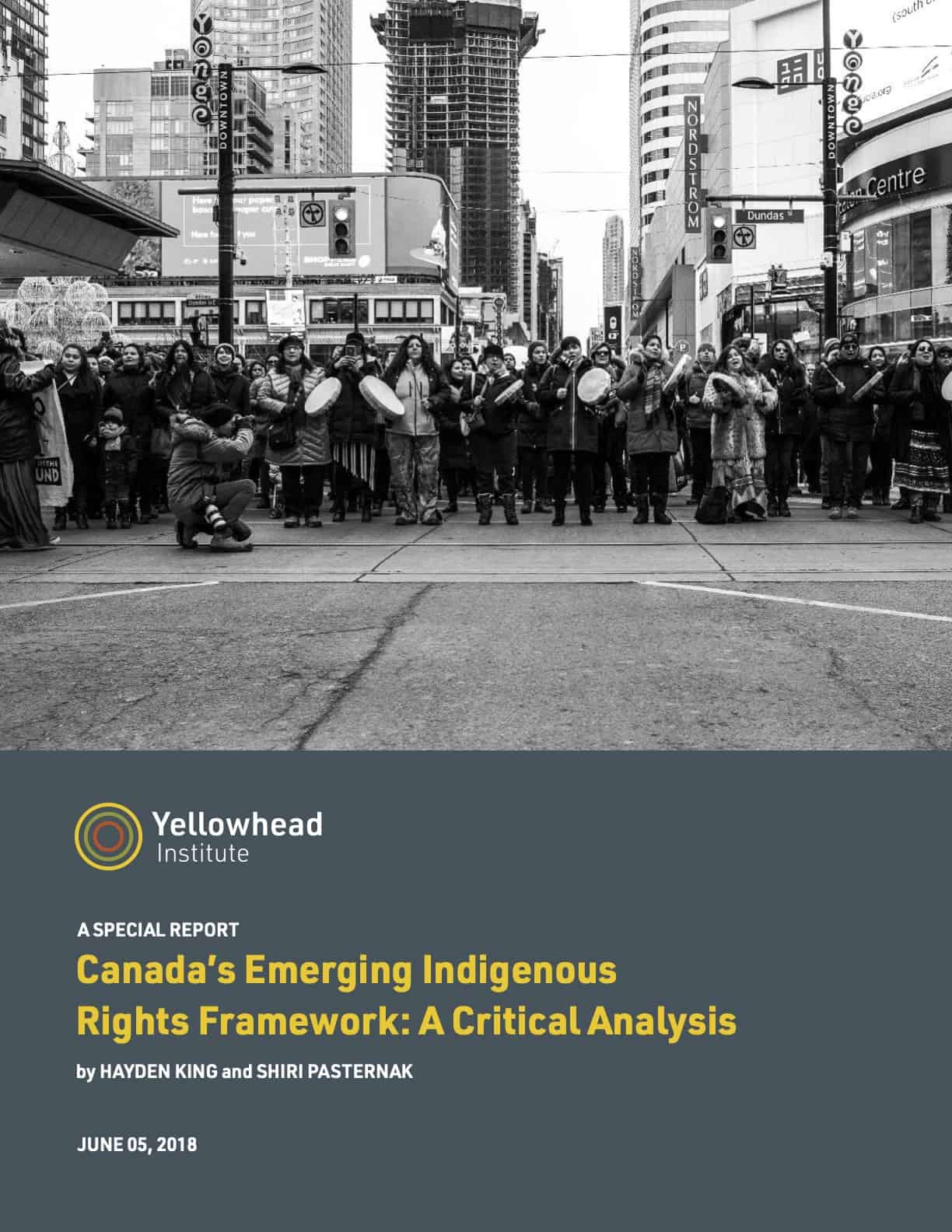- About
- Research
-
-
- Special Reports & Features
- Braiding Accountability: A Ten-Year Review of the TRC’s Healthcare Calls to Action
- Buried Burdens: The True Costs of Liquified Natural Gas (LNG) Ownership
- Pretendians and Publications: The Problem and Solutions to Redface Research
- Pinasunniq: Reflections on a Northern Indigenous Economy
- From Risk to Resilience: Indigenous Alternatives to Climate Risk Assessment in Canada
- Twenty-Five Years of Gladue: Indigenous ‘Over-Incarceration’ & the Failure of the Criminal Justice System on the Grand River
- Calls to Action Accountability: A 2023 Status Update on Reconciliation
- View all reports.
- Special Reports & Features
-
-
- Yellowhead School
-
- The Treaty Map
- LIBRARY
- Submissions
- Donate
Justin Trudeau ran on an election platform of changing the relationship between the Crown and Indigenous peoples in Canada.
Trudeau promised a new nation-to-nation relationship based on the recognition of Indigenous rights, respect, cooperation, and partnership. Over halfway into his mandate as Prime Minister, some clarity is emerging on the scope of that nation-to-nation relationship. In February 2018, Trudeau announced the development of a new and transformational Indigenous Rights, Recognition and Implementation Framework.
Since then, a suite of legislation and policy has been rapidly deployed. It includes fiscal policy, omnibus legislation, changes in negotiations for land and self-government, two new ministries of Indian Affairs and dozens of tables, working groups, MOUs, and related government initiatives.
Yet, there is scarce comprehensive analysis on the meaning and trajectory of Canada’s approach.
Our report finds that the Rights Framework expresses a clear and coherent set of goals, which revolve around domesticating Indigenous self-determination within Canadian Confederation. These goals have been ordered into legislation and policy in a manner that guides First Nations towards a narrow model of “self-government” outside of the Indian Act.
KEY QUESTIONS
The Trudeau government has been among the most active on Indigenous issues in a century. How will current and pending policy and legislative changes impact First Nations pursuit of self-determination?
Related Resources
First Nations will not be forced into this process, only encouraged to participate. But what kind of choice is a voluntary process if alternative models—ones that might focus on traditional territories, title lands, or expanded governing authority—are not an option?
- hayden king & shiri pasternak

